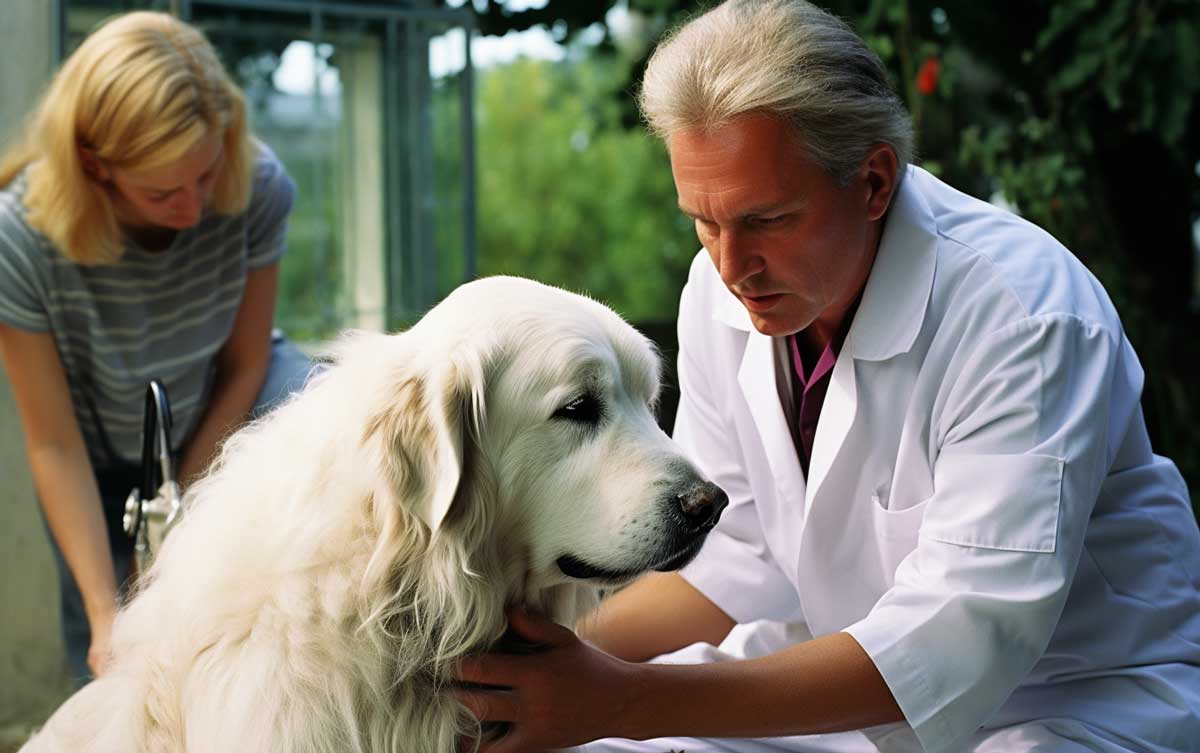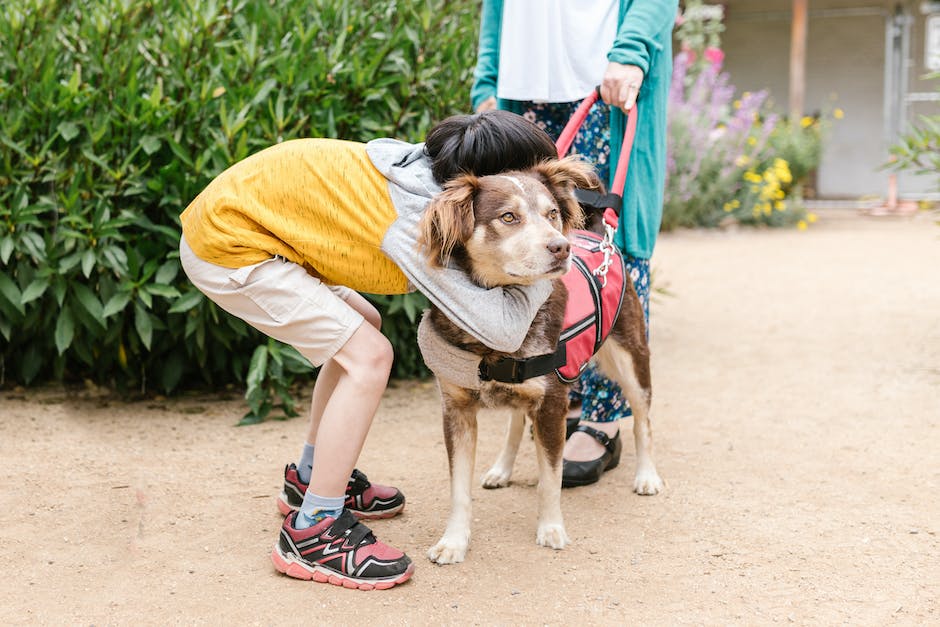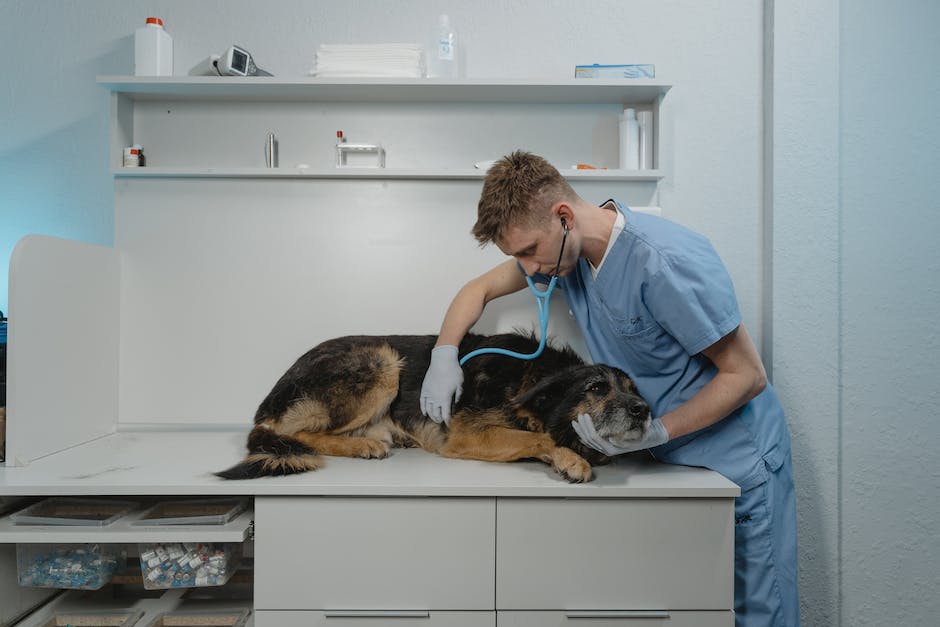Service dogs play a crucial role in the lives of many individuals with disabilities, offering assistance, companionship, and even life-saving interventions. However, obtaining a service dog can be costly, and not everyone has the financial means to afford one. Fortunately, there are assistance programs and organizations that offer aid for getting a service dog to eligible individuals.
If you're wondering “how can I get a service dog with no money?”, this article will guide you through the process and provide valuable insights.
Definition Of A Service Dog
A service dog is not just any pet or companion animal. It is a specially trained canine that assists individuals with disabilities in performing specific tasks or functions that they might find challenging due to their condition.
According to the Americans with Disabilities Act (ADA), service animals are defined as dogs that are individually trained to do work or perform tasks for people with disabilities. This definition distinguishes service dogs from other types of working dogs, such as police dogs or search-and-rescue dogs.
Service dogs can be trained for a variety of tasks, including guiding the visually impaired, alerting individuals with hearing impairments to sounds, pulling a wheelchair, alerting and protecting a person who is having a seizure, and more. The primary criterion is that the dog must be trained to perform tasks directly related to the person's disability.
Benefits Of A Service Dog
-
Physical Assistance: Service dogs are trained to help with various physical tasks. For individuals with mobility issues, these dogs can assist in tasks like opening and closing doors, fetching items, or even helping their handler get up from a seated position.
-
Emotional Support: Beyond the physical tasks, service dogs provide invaluable emotional support. Their presence can offer comfort, reduce anxiety, and boost the confidence of their handlers, especially in social settings.
-
Increased Independence: With a service dog by their side, individuals with disabilities often find that they can do more on their own without relying on human assistance. This boost in independence can significantly improve their quality of life.
-
Safety And Protection: Some service dogs are trained to detect and respond to medical emergencies, such as seizures or drops in blood sugar. In such cases, the dog can be trained to alert someone, fetch medication, or even press an emergency button.
-
Companionship: One of the most profound benefits of a service dog is the companionship they offer. The bond between a service dog and its handler is deep, providing a sense of belonging and unconditional love.
Qualifications For Obtaining A Service Dog
Obtaining a service dog requires certain qualifications, primarily based on the individual's disability and the necessity of a service dog for assistance.
Medical Conditions Eligible For Service Dogs
Service dogs are trained to assist individuals with a wide range of disabilities. Some of the eligible physical disabilities include:
-
Blindness (partial and complete)
-
Deafness (partial and complete)
-
Paralysis
-
Multiple Sclerosis
-
Autism
-
Epilepsy
-
Osteoporosis
-
ALS
-
Cancer
-
Cerebral Palsy
Additionally, service dogs can also assist individuals with certain mental health conditions, such as anxiety, depression, or PTSD. It's essential to note that the specific condition should put limitations on an individual's life to qualify for a service dog.
Qualifying Financial Criteria
While service dogs can be expensive, there are several financial assistance options available for those who cannot afford one:
-
Service Dog Grants: Various organizations offer grants to individuals in need of a service dog. Most of these grants require documentation of a verifiable disability.
-
Adoption: Some organizations allow individuals to adopt a service dog at a reduced cost if they don't qualify for full financial assistance.
-
Scholarships: Certain programs offer scholarships to help eligible individuals get a service dog.
-
Insurance: While health insurance generally does not cover the cost of a service dog, it's worth checking with your provider for any available options
Specialized Training Requirements
Training a service dog is a comprehensive process that ensures the dog can assist its handler effectively and safely. Here are the key training requirements:
-
Basic Obedience Training: Before diving into specialized tasks, a service dog must master basic obedience skills. This involves standard cues such as "sit," "stay," and "come."
-
Task-Specific Training: Service dogs undergo training to perform specific tasks that aid their handler's disability. This could range from guiding the visually impaired to alerting someone with epilepsy of an impending seizure.
-
Public Access Test: After training, service dogs should pass a public access test to ensure they can behave appropriately in various public settings.
-
Duration Of Training: It takes about six months to a year (120+ hours) to properly train a service dog. Additionally, dogs need to work a minimum of 30 hours in public settings to generalize their skills.
Organizations Providing Financial Assistance For Service Dogs
The cost of obtaining a service dog can be a significant barrier for many. However, numerous organizations are dedicated to providing financial assistance, ensuring that everyone who needs a service dog can access one.
Nonprofit Organizations That Provide Financial Assistance
Several nonprofit organizations offer financial assistance to individuals in need of a service dog:
-
Pawtism: This organization focuses on providing service dogs to individuals with autism.
-
National Autism Association: They offer support and resources for families affected by autism, including assistance with obtaining service dogs.
-
Autism Speaks – Family Services Grants: This foundation provides grants to families for various needs, including service dogs.
-
Doggie Does Good: A nonprofit organization that connects service dogs with individuals across the U.S. with various disabilities.
-
Paws With Purpose: Founded in 2003, this organization provides highly skilled assistance dogs to children and adults with disabilities.
-
Paws 4 A Cure: An all-volunteer nonprofit that offers financial assistance to those who cannot afford veterinary care for their pets, including service dogs.
Personal Loans To Cover Costs Associated With Service Dogs
For those who might not qualify for grants or other forms of financial assistance, personal loans can be a viable option to cover the costs associated with obtaining a service dog:
-
Credible: This platform allows individuals to compare personal loan rates from multiple lenders, making it easier to find a suitable loan for service dog expenses.
-
Bankrate: They provide insights into various loan options and financial strategies to afford a service dog.
-
Finder: This platform offers guidance on understanding the full costs of a service dog and finding financing that fits individual needs.
-
Lantern By SoFi: They provide information on various ways to cover the cost of a service dog, including personal loans.
Health Savings Accounts And Quality Of Life Programs
-
Health Savings Accounts (HSA): HSAs can be used to cover medical bills associated with service dogs since they perform a medically-required service. This can include expenses related to the dog's health and well-being.
-
Quality of Life Programs: Various programs focus on improving the quality of life for individuals with disabilities. Service dogs play a significant role in enhancing the well-being and emotional functioning of their handlers. Studies have shown that owning a service dog can have positive outcomes on psychological well-being, self-esteem, and vitality.
Finding The Right Organization To Work With
Choosing the right organization is a pivotal step in the journey of obtaining a service dog. It's not just about financial assistance but also about ensuring the dog's training and well-being align with the handler's needs.
Researching Potential Organizations And Their Reputations
When considering a service dog organization, it's crucial to conduct thorough research to ensure you're partnering with a reputable entity. Here are some steps to guide your research:
-
Online Reviews: Check online platforms such as Google Reviews, Yelp, and the Better Business Bureau to read feedback from previous clients.
-
Testimonials: Many organizations will have testimonials on their websites. While these are typically positive, they can provide insights into the experiences of past clients.
-
Social Media: Visit the organization's social media pages to gauge their activity, community engagement, and any feedback from the public.
-
Ask For References: Reputable organizations should be willing to provide references from past clients who have obtained service dogs from them.
-
Check Affiliations: Determine if the organization is affiliated with or accredited by recognized entities in the service dog industry.
Ensuring Proper Certification Of Organizations And Trainers
While the ADA does not require service dogs to be formally certified, ensuring that an organization or trainer has proper certification can provide peace of mind:
-
Training Standards: Ask about the training standards and methodologies used by the organization. Some entities, like the International Association of Assistance Dog Partners (IAADP), provide minimum training standards for public access.
-
Accreditation: Determine if the organization is accredited by recognized entities such as Assistance Dogs International (ADI).
-
Trainer Credentials: Inquire about the credentials and experience of the trainers. Some organizations may have trainers certified by the International Association of Canine Professionals (IACP) or other recognized bodies.
-
Transparency: A reputable organization should be transparent about their training processes, success rates, and any challenges they've faced.
Questions To Ask When Deciding On An Organization
When evaluating potential service dog organizations, consider asking the following questions:
-
What is the cost of obtaining a service dog through your organization?
-
What training standards do you adhere to for your service dogs?
-
How long is the waiting period to receive a service dog?
-
Do you provide support and follow-up after a service dog is placed with a handler?
-
How are the dogs sourced (e.g., breeders, rescues), and what breeds do you typically work with?
-
What is the process for matching a service dog with a handler?
-
Do you offer any financial assistance or payment plans for those who cannot afford the full cost?
-
How do you handle situations where a service dog and handler are not a good match?
-
What ongoing training or recertification is required for the service dog and handler?
-
Can you provide references from individuals who have obtained service dogs from your organization?
Training Process for Obtaining a Service Dog
Service dogs play a pivotal role in enhancing the lives of individuals with disabilities. Their training is rigorous, ensuring they can perform specific tasks that assist their handlers in daily life. Let's delve into the training process for obtaining a service dog.
Understanding The Role Of Service Dogs
Service dogs are trained to perform specific tasks that assist individuals with disabilities. These tasks are directly related to the person's disability. For instance, guide dogs assist blind and visually impaired individuals in navigating their surroundings. Hearing dogs alert deaf and hard-of-hearing individuals to crucial sounds. Mobility dogs assist those who use wheelchairs or have balance issues. Medical alert dogs might signal the onset of a medical issue, such as a seizure or low blood sugar. Psychiatric service dogs assist individuals with conditions like obsessive-compulsive disorder, post-traumatic stress disorder, and schizophrenia.
Training Duration And Process
It generally takes 1-2 years to train a service dog. The training encompasses both basic obedience and specialized tasks tailored to the handler's needs. A significant portion of this training, at least 30 hours, should focus on public access skills. Given that all dogs are unique, sometimes the training can extend up to two years.
Key Training Components
-
Foundation Skills: Before diving into specialized training, a service dog candidate should master foundational skills. This includes house training, socialization, and basic obedience. The dog should be able to eliminate waste on command in various locations, remain focused on the handler amidst distractions, and interact appropriately with unfamiliar people and environments.
-
Task-Specific Training: After mastering the basics, the dog undergoes training tailored to the handler's disability. This could involve guiding a visually impaired person, alerting to specific sounds for a deaf individual, or detecting the onset of a medical condition.
-
Public Access Training: Service dogs must behave appropriately in public settings. This involves settling quietly by the handler's side, navigating crowded areas without distraction, and responding promptly to the handler's commands.
-
Continuous Assessment: Throughout the training process, the dog's performance and behavior are continuously assessed. Not all dogs make the cut to become service dogs. Professional trainers maintain high standards, and drop-out rates can be as high as 50% to 70%. However, dogs that don't qualify as service dogs often find homes as pets.
Self-Training vs. Professional Training
The Americans with Disabilities Act (ADA) allows individuals to train their service dogs. While some opt for this route, many turn to professional trainers or organizations to ensure comprehensive training. Both non-profit and for-profit organizations offer service dog training. The cost can exceed $25,000, covering the dog's training and periodic follow-up sessions. Some organizations provide service dogs at no cost or offer financial aid, while others may charge fees.
Choosing The Right Breed
Service dogs come in various breeds and sizes, each suited to specific tasks. For instance, a small breed like a Papillon might be trained as a hearing dog, while larger breeds like Great Danes or Bernese Mountain Dogs might be trained for mobility assistance. Labrador Retrievers, Golden Retrievers, and German Shepherd Dogs are among the most common breeds trained as service dogs.
Getting A Service Dog With No Money
If you are wondering, “how can I get a service dog with no money?”, this guide can help you get started. When getting a service dog, understanding the intricacies of the process is paramount. From recognizing the profound benefits these dogs bring to individuals with disabilities to exploring financial assistance options and learning about their training, every step is crucial. Service dogs are more than just pets; they are lifelines, companions, and heroes that enhance the quality of life for many. As you consider embarking on this journey, remember the resources and organizations available to guide you, ensuring a harmonious partnership with a service dog tailored to your needs.
Learn more about different assistance programs you can qualify for by exploring our detailed guide on getting emergency housing assistance for the disabled. Visit Gov Relations and browse through the available resources to learn more.







